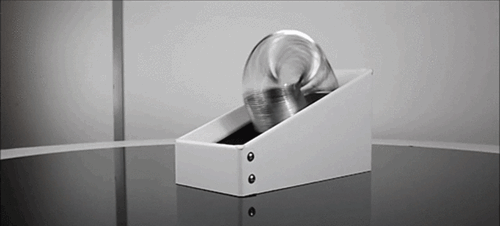 Harbert
College of Business
Harbert
College of Business
 The same as in
other marketing courses, students can't view marketing activities as
a consumer who buys products, but instead, as marketing managers who
must make decisions based on possible reactions of present or
potential customers. What any individual student likes or dislikes
is irrelevant. We will discuss possible decisions for products
members of the class might not buy, in contexts for which they would
never be in the target market, unavoidably resulting in discussions
of
The same as in
other marketing courses, students can't view marketing activities as
a consumer who buys products, but instead, as marketing managers who
must make decisions based on possible reactions of present or
potential customers. What any individual student likes or dislikes
is irrelevant. We will discuss possible decisions for products
members of the class might not buy, in contexts for which they would
never be in the target market, unavoidably resulting in discussions
of  products, store situations or mass media
messages that some members of the class might find personally
offensive. This is unavoidable. It's the business reality. Marketing
managers are rarely (if ever) the same types of people as their
primary customers and must make decisions about the desires and
interests of people unlike themselves.
products, store situations or mass media
messages that some members of the class might find personally
offensive. This is unavoidable. It's the business reality. Marketing
managers are rarely (if ever) the same types of people as their
primary customers and must make decisions about the desires and
interests of people unlike themselves.  However,
the
classroom experience is considered an integral aspect of this
course and your attendance is an important part of the learning
experience. Classes will always start on time in the business sense
of the term: at the time designated for the start of class, students
are expected to be in their seats and ready to work. Every semester,
students tend to perform poorly in the course if they have a
semester of erratic attendance, a chronic propensity to come to
class without reading the assigned chapters and/or an inability to
take notes on anything other than what appears on a screen. As a
more basic matter, it is disrespectful to your classmates when you
repeatedly drift in late and a distract those present. In business,
you get fired. On a sports team, you literally "miss the bus."
However,
the
classroom experience is considered an integral aspect of this
course and your attendance is an important part of the learning
experience. Classes will always start on time in the business sense
of the term: at the time designated for the start of class, students
are expected to be in their seats and ready to work. Every semester,
students tend to perform poorly in the course if they have a
semester of erratic attendance, a chronic propensity to come to
class without reading the assigned chapters and/or an inability to
take notes on anything other than what appears on a screen. As a
more basic matter, it is disrespectful to your classmates when you
repeatedly drift in late and a distract those present. In business,
you get fired. On a sports team, you literally "miss the bus."
 All assigned
readings from the textbook, additional handouts, regular lectures,
guest speaker presentations and video programs -- everything covered
from the first minute of the first class -- could be the basis for
questions. And, since they are all inter-related, it is impossible
to say what to "emphasize" when you study, or whether you should
"focus" more on the lectures or textbook. Do not ask what is "more
important" in preparing for exams. It is all important. Each of the
tests cover only the material from the period since the prior test.
The comprehensive final exam covers all materials from the entire
semester, because that is what comprehensive means, and no single
section or week of material will be covered any more heavily than
any other. The weight of the final exam reflects the importance of
assessing what you take from the class at the end of the semester.
All assigned
readings from the textbook, additional handouts, regular lectures,
guest speaker presentations and video programs -- everything covered
from the first minute of the first class -- could be the basis for
questions. And, since they are all inter-related, it is impossible
to say what to "emphasize" when you study, or whether you should
"focus" more on the lectures or textbook. Do not ask what is "more
important" in preparing for exams. It is all important. Each of the
tests cover only the material from the period since the prior test.
The comprehensive final exam covers all materials from the entire
semester, because that is what comprehensive means, and no single
section or week of material will be covered any more heavily than
any other. The weight of the final exam reflects the importance of
assessing what you take from the class at the end of the semester.  OTHER CLASS
POLICIES and some AU-required narishkeit
OTHER CLASS
POLICIES and some AU-required narishkeit
|
|
Topics |
|
|
Topic 1 |
Campus Dining & Marketing problems |
|
|
Topic 2 |
Company & Marketing Strategies |
Chapter 1 & 2 |
|
Topic 3 |
The Marketing Environment |
Chapter 3 |
|
Topic 4 |
Marketing information & Consumer Behavior |
Chapters 4 & 5 |
|
Topic 5 |
Customer Value-Driven Marketing Strategies |
Chapter 6 |
|
Topic 6 |
Products & Services & Brands |
Chapter 7 |
|
Topic 7 |
Managing Products, developing new ones & pricing |
Chapter 8 & 9 |
|
Topic 8 |
Marketing Channels |
Chapter 10 |
|
Topic 9 |
Retailing & Wholesaling |
Chapter 11 |
|
Topic 10 |
Advertising & Publicity |
Chapter 12 |
|
Topic 11 |
Sales Promotions |
Chapter 13 |
|
Topic 12 |
Direct Marketing |
Chapter 14 |
|
Topic 13 |
Global Marketplace |
Chapter 15 |
|
Topic 14 |
Sustainability & why it matters |
Chapter 16 |
|
|
Review
|
|
|
|
FINAL EXAM |
On Everything!! |
